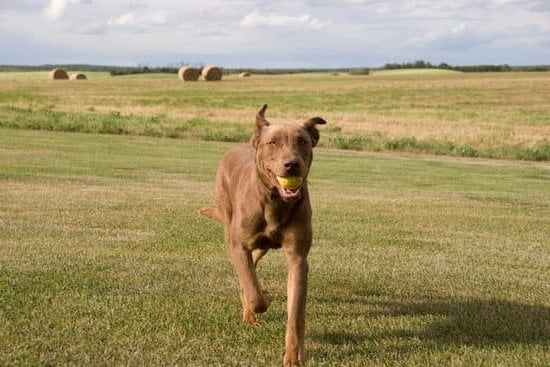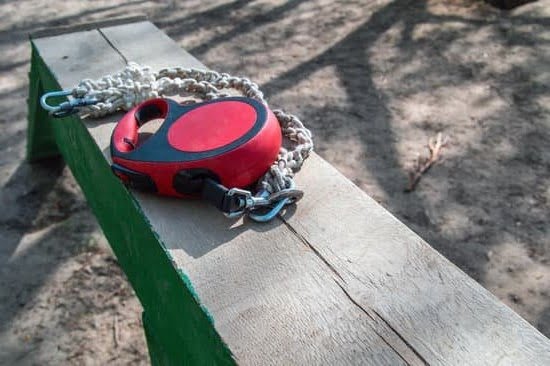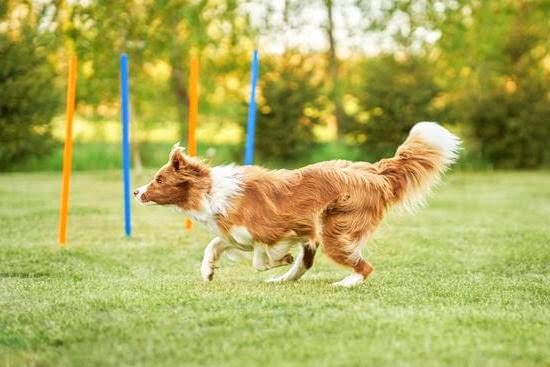Are neutered dogs easier to potty train? Potty training is a crucial aspect of owning a dog, as it not only keeps your home clean and odor-free but also helps maintain a harmonious relationship between you and your furry friend. Neutering, the process of surgically removing a male dog’s testicles or a female dog’s ovaries, can have an impact on their behavior, including their ability to be effectively potty trained.
Neutering plays a significant role in a dog’s behavior, with some studies suggesting that neutered dogs may exhibit fewer marking behaviors in the house. This leads to the question of whether neutered dogs are indeed easier to potty train compared to intact dogs. Understanding this relationship between neutering and potty training is essential for pet owners looking to ensure a successful training experience.
While neutering may influence a dog’s behavior and potentially make potty training easier, there are several other factors that can also affect the success of potty training. Factors such as the dog’s age, breed, and environment all play crucial roles in how quickly and efficiently they learn where to go potty. It is important for pet owners to consider these factors when embarking on the journey of potty training their beloved companions.
Understanding Neutering
Neutering is a common surgical procedure for dogs that involves the removal of the reproductive organs, typically the testes in male dogs. This procedure is often recommended by veterinarians for various reasons, including population control, health benefits, and behavior modifications. Neutering can have a significant impact on a dog’s behavior, including reducing roaming tendencies, aggression, and marking behaviors.
Here are some key points to understand about neutering in dogs:
- Neutering can help reduce hormone-driven behaviors such as urine marking and the desire to roam in search of a mate.
- Neutered dogs may exhibit calmer behavior and be less likely to engage in territorial disputes with other animals.
- The procedure can also have health benefits for dogs, such as reducing the risk of certain reproductive cancers.
Overall, neutering plays a crucial role in canine population control and can contribute to better behavior and health outcomes for dogs. However, it is important to consider individual differences in each dog’s personality and temperament when evaluating how neutering may impact their behavior. Ultimately, proper training and socialization play a significant role in shaping a well-behaved and well-adjusted dog, regardless of whether they are neutered or not.
The Relationship Between Neutering and Potty Training
Neutering is a common surgical procedure done on dogs to prevent them from reproducing. It involves the removal of a male dog’s testicles or a female dog’s ovaries and uterus. While neutering is typically done for population control and health reasons, it also has behavioral implications. Many pet owners wonder if neutered dogs are easier to potty train compared to intact dogs.
The relationship between neutering and potty training is a complex one. Neutered dogs may exhibit certain behavioral changes that can impact their potty training success. For instance, neutering can reduce hormone-driven behaviors such as marking territory indoors. This can make it easier to establish good potty habits in neutered dogs. Additionally, spaying female dogs can eliminate heat cycles, which often lead to accidents in unspayed females.
Although neutered dogs may have some advantages when it comes to potty training, success ultimately depends on various factors. Age, breed, and environment play significant roles in a dog’s ability to learn proper potty habits. Young puppies, regardless of their spay/neuter status, require consistent training and positive reinforcement to develop good bathroom manners. Certain breeds may also be more stubborn or independent, making potty training a bit more challenging regardless of their neuter status.
| Key Factors Influencing Potty Training Success | Neutering Impact |
|---|---|
| Age of the Dog | May affect how quickly a dog learns good bathroom habits after being neutered. |
| Breed Characteristics | Some breeds may be inherently easier or more difficult to potty train regardless of being spayed/neutered. |
| Consistent Training | Remains crucial for all dogs, whether they are neutered or intact. |
Factors Influencing Potty Training
Neutering a dog can have various effects on their behavior and overall well-being. When it comes to potty training, many pet owners wonder if neutered dogs are easier to train in this aspect. While neutering itself may not directly impact a dog’s ability to be potty trained, there are several factors that play a crucial role in determining the success of the training process.
Age
One of the key factors that can influence a dog’s potty training success is their age. Puppies, for example, may have a harder time holding their bladder compared to adult dogs. Young puppies have smaller bladders and weaker muscle control, making accidents more likely. It is important for pet owners to understand that younger dogs may require more frequent potty breaks and supervision during the training process.
Breed
Different dog breeds have different temperaments, energy levels, and tendencies when it comes to potty training. Some breeds may catch on quickly and respond well to training techniques, while others may take more time and patience. Understanding your dog’s breed characteristics can help you tailor your approach to potty training based on what works best for them.
Environment
The environment in which a dog lives plays a significant role in their potty training success. Dogs thrive in consistent routines and familiar surroundings. Sudden changes in the environment or disruptions to their daily schedule can lead to setbacks in potty training progress. Creating a structured routine and providing a comfortable space for your dog to eliminate can greatly impact their ability to learn and master good bathroom habits.
Training Techniques for Neutered Dogs
Establish a Routine
One of the most important aspects of potty training any dog, including neutered ones, is to establish a consistent routine. Dogs thrive on predictability, so feeding your dog at the same times each day and taking them out for bathroom breaks at regular intervals can help set them up for success. Neutered dogs may have slightly different bathroom habits than intact dogs, so it’s crucial to observe your dog’s behavior and adjust the routine accordingly.
Use Positive Reinforcement
Positive reinforcement is key when potty training neutered dogs. Whenever your dog goes to the bathroom outside, be sure to praise them and offer a treat as a reward. This will help reinforce the desired behavior and make your pooch more likely to repeat it in the future. Avoid punishing or scolding your dog for accidents indoors, as this can cause confusion and anxiety.
Supervise and Monitor Behavior
Keeping a close eye on your neutered dog’s behavior can help you anticipate when they need to go out. Signs like sniffing around, circling, or heading towards the door may indicate that it’s time for a bathroom break. By paying attention to these cues and promptly taking your dog outside, you can prevent accidents indoors and fast-track the potty training process for your neutered furry friend.
Neutering itself may not directly impact a dog’s ability to be potty trained; however, consistency in training techniques tailored specifically to neutered dogs can greatly improve their success in mastering this essential skill. By following these tips and being patient with your pet, you can effectively potty train your neutered dog and enjoy a clean and harmonious home environment together.
Common Challenges
Neutering a dog can have many positive effects on their behavior, but it doesn’t automatically make them easier to potty train. Many pet owners wonder, “Are neutered dogs easier to potty train?” The answer isn’t a simple yes or no. While neutering can sometimes lead to reduced marking behaviors in male dogs and minimize distractions during the training process, it doesn’t guarantee instant success in potty training.
One common challenge that pet owners face when potty training their neutered dogs is the issue of consistency. Neutering might have an impact on a dog’s urge to mark territory, but it doesn’t eliminate the need for consistent reinforcement and training.
Owners need to be vigilant in maintaining a regular potty schedule, rewarding good behavior, and correcting accidents promptly. Consistency is key in reinforcing desired habits and helping your neutered dog understand where they should be doing their business.
Another challenge that pet owners may encounter when potty training their neutered dogs is dealing with past behaviors or habits. If a dog was previously not properly trained before being neutered, they may have already developed certain patterns of behavior that are challenging to break. In these cases, patience and persistence are crucial. It’s important for pet owners to set realistic expectations, stay positive, and continue training efforts even if setbacks occur along the way.
| Common Challenges | Potty Training Tips |
|---|---|
| Consistency | Make sure to maintain a regular schedule and reward good behavior consistently. |
| Past Behaviors | Be patient, stay positive, and persevere through setbacks while retraining your neutered dog. |
Patience and Consistency
Potty training is a crucial aspect of raising a well-behaved and happy dog. Pet owners understand the importance of teaching their furry companions where to relieve themselves, not only for cleanliness but also for the overall harmony in the household. Neutering dogs, on the other hand, is a common practice that has been linked to various behavior modifications. Understanding whether neutered dogs are easier to potty train can help pet owners navigate this process more effectively.
When it comes to potty training neutered dogs, patience and consistency play a vital role in ensuring success. By setting a routine and sticking to it diligently, pet owners can create a structured environment that helps their pets learn where and when it’s appropriate to go potty. Here are some tips to help reinforce this training:
- Establish a feeding schedule: By feeding your dog at consistent times each day, you can predict when they will likely need to go potty.
- Take them outside frequently: Especially after meals, naps, or playtime, take your dog outside to their designated potty area consistently.
- Use positive reinforcement: Praise and reward your dog when they go potty in the right spot to reinforce good behavior.
Despite being generally well-behaved and trainable post-neutering, some neutered dogs may still present challenges when it comes to potty training. It’s essential for pet owners to remain patient and calm throughout the process, as accidents and setbacks are normal.
Consistency in using positive reinforcement techniques will help neutered dogs understand what is expected of them and encourage desired behaviors over time. By emphasizing patience and consistency in the potty training process with neutered dogs, pet owners can set up their furry friends for success while strengthening their bond through effective communication.
Conclusion
In conclusion, the question “Are neutered dogs easier to potty train?” is one that many pet owners may have when considering getting their canine companion neutered. While neutering can have some impact on a dog’s behavior, it is not a guarantee that they will be easier to potty train. Factors such as age, breed, previous training, and environment all play crucial roles in determining how successful the potty training process will be for your furry friend.
It is important for pet owners to understand that successful potty training requires patience, consistency, and dedication. Neutering alone does not automatically make a dog easier to potty train. By providing appropriate training techniques tailored to neutered dogs and being consistent in reinforcing good behaviors, pet owners can set their dogs up for success in the potty training process.
Ultimately, the key to a happy and healthy relationship with your neutered dog lies in proactive potty training practices. By understanding the factors that influence potty training success, being patient during the process, and consistently reinforcing positive behaviors, pet owners can help their canine companions become well-trained and well-adjusted members of the family.
Remember, every dog is unique, so it may take time and effort to find the approach that works best for your furry friend – but with dedication and love, you can achieve success in potty training your neutered dog.
Frequently Asked Questions
Will Neutering a Dog Help With Peeing in House?
Neutering a dog can potentially help with peeing in the house by reducing hormone-driven behaviors like marking. However, it is not a guaranteed solution, as other factors like training and medical issues may still play a role.
Are Neutered Dogs More Trainable?
Neutered dogs may be more trainable in some cases due to reduced levels of testosterone leading to less aggression and distraction from training. However, trainability ultimately depends on the individual dog’s personality and history.
Do Male Dogs Pee Less After Neuter?
Male dogs may pee less after being neutered because their testosterone levels decrease, which can reduce territorial marking behaviors. However, changes in urination habits post-neuter can vary among dogs based on factors like age, breed, and prior training.

Welcome to the blog! I am a professional dog trainer and have been working with dogs for many years. In this blog, I will be discussing various topics related to dog training, including tips, tricks, and advice. I hope you find this information helpful and informative. Thanks for reading!





